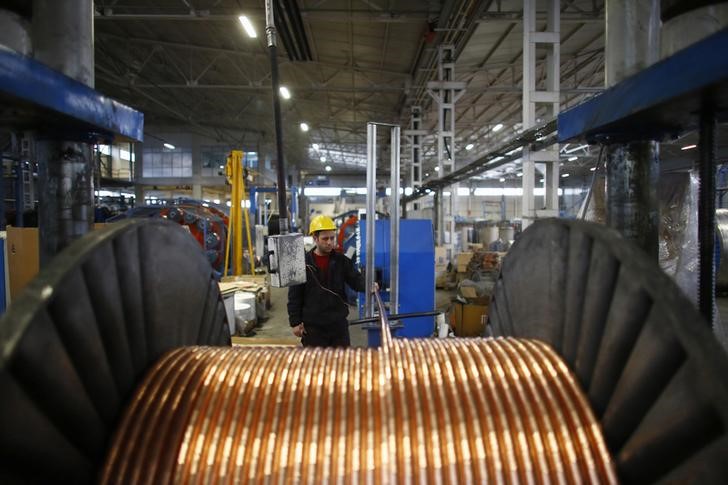By Eric Onstad
LONDON, Jan 19 (Reuters) - Copper prices are vulnerable since key Chinese speculators have virtually abandoned the market since it hit a 17-month year peak in November and top producer Chile may avoid a strike later this month, broker Marex Spectron said on Thursday.
Many investors believe that copper's sizzling rally late last year, initially driven by Chinese buying, signalled the launch of a fresh bull market in the metal, said Guy Wolf, global head of market analytics at Marex.
But Chinese speculators had not been buying because they were optimistic about physical demand in the world's biggest copper consumer but because of a technical squeeze in the options market, he told a presentation.
"What has been remarkable has been how quickly the open interest levels on the Shanghai exchange have reversed the increase we saw at the end of last year," he said.
"What happened last year was a technical situation and once we went through the December option expiry, that structure was no longer there."
Benchmark copper CMCU3 on the London Metal Exchange hit a peak of $5,930 a tonne on Monday, the highest since early December, and compared with last year's peak of $6,045.50.
While Chinese activity in copper has been very lacklustre recently, long positions on the London Metal Exchange are at 12-month highs based on Marex's analysis, Wolf added.
"I would argue that for copper to have upside from here you've got to have a strike in Chile. Otherwise I think you have relatively decent downside."
Earlier this month, a union spokesman said workers at BHP Billiton-owned BHP.AX , BLT.L Escondida, the world's biggest copper mine, could go on strike in February if collective contract talks with the company are unsuccessful. Wolf says the two sides are likely to come to an agreement.
"I don't think the real risk is around Escondida ... My view is, just talking to people in the industry, that it's likely that BHP will come to a deal because they can afford it."
There could be strikes at local mines, however, which are unable to match the BHP settlement, he said.
"All these things come together to make the market look, for us at least, in the short-term extremely vulnerable," he added.
